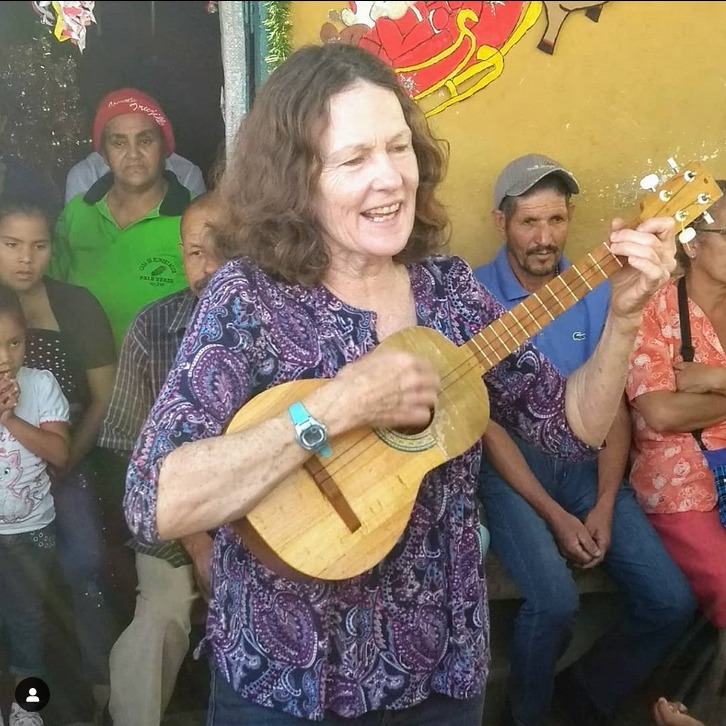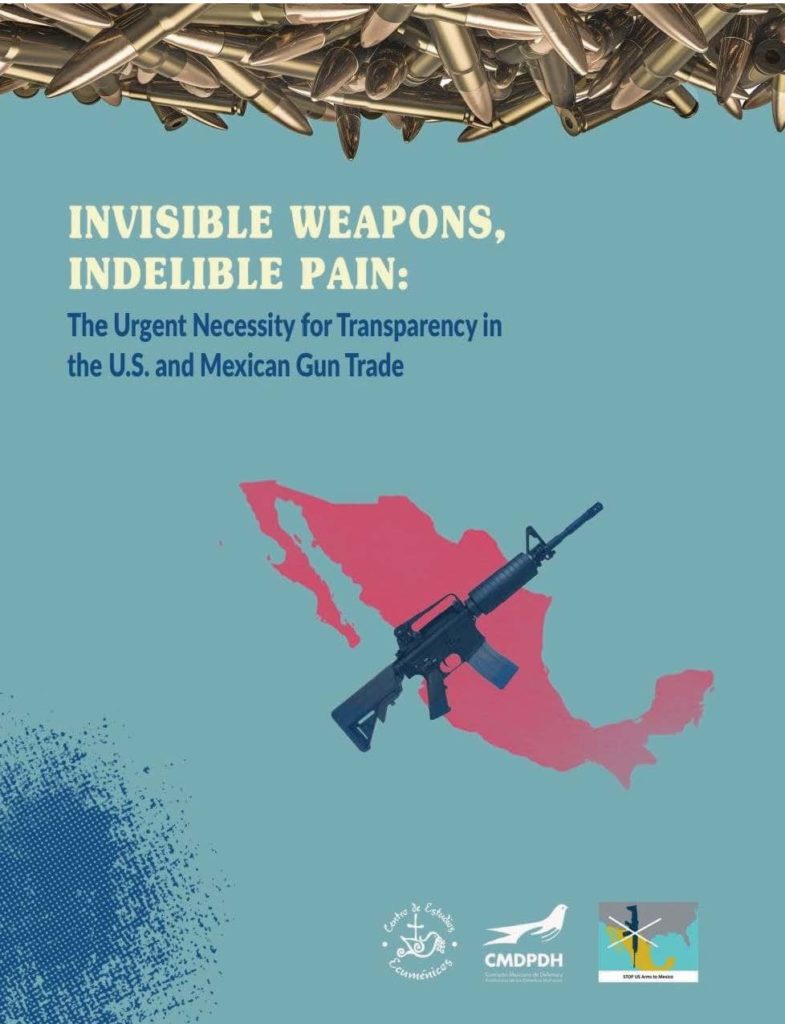These events were co-sponsored by the Interfaith Council for Peace & Justice Latin America Caucus, U of M Latin American & Caribbean Studies, Wayne State University Center for Latino/a & Latin American Studies & Huron Valley DSA, with a generous financial contribution from the U of M LACS.
Venezuela’s Journey from Hope to Heartbreak: An Inside Unfinished Tale
featuring Lisa Sullivan
February 15, 2023
https://www.facebook.com/icpja2/videos/708881167458187
Lisa Sullivan, former Maryknoll lay missioner and SOA Watch activist, will speak on the issues facing the Venezuelan People, sharing her experience of living and working under the current regime. She will cover the economic, political and human rights concerns, as well as the unprecedented migration from the country. Venezuela, under the leadership of Hugo Chávez from 1999 to 2013 and Nicolás Maduro since then, has experienced acute political polarization and economic crisis aggravated by U.S. sanctions.

Lisa lived in Venezuela for 37 years, returning to the US a few months ago. She served as a Maryknoll lay missioner for 21 years, then as coordinator of the School of the Americas Watch Latin America Project, organizing citizen diplomacy delegations to 18 countries. She raised her three children in the western barrios of Barquisimeto where they were surrounded by a loving community and vibrant social movement. She and her partner Ledys Navas founded the Centro Cultural San Juan, where for 20 years they taught children to play the traditional Venezuelan instruments of cuatro and tambor. They established Conuco Colibrí, a permaculture teaching farm and retreat center in the Andes mountains. Currently Lisa works with the Maryknoll Office for Global Concerns in Washington, DC as their Climate Justice Coordinator.
Colombia at a Glance: Challenges and Opportunities
featuring Martha Ines Romero
January 10, 2023
Martha Inés Romero, Secretary General of the global peace movement Pax Christi International, will speak about Colombia’s historic 2016 peace accord (the implementation process and prospects since the 2022 presidential election); comprehensive peace and what it implies; and challenges for civil society organizations and social movements.

Martha Inés, a Colombian social development professional, has over three decades of experience in the accompaniment of community processes in design, implementation, monitoring and evaluation of development projects, humanitarian relief and peacebuilding and reconciliation processes. With studies and experience in peace building and conflict transformation, based on theory of change and non-violence, she has worked extensively in Latin America and the Caribbean and more in-depth in Colombia, with focus on the internal conflict and its impact on vulnerable communities such as Indigenous and Afro-descendants, as well as the impact on women and gender-based violence. For the past 31 years, as a representative of international agencies as well as peace practitioner, Martha-Inés has been dedicated to promoting nonviolence programs with a focus on grassroots communities and a gender-equality rights approach.
The Struggle for Environmental, Racial & Human Rights in Honduras
featuring Mary Anne Perrone
May 10, 2022
Borders, Homeland Security & Bridges
featuring Todd Miller
April 12, 2022
Todd Miller writes a weekly post for The Border Chronicle. He has researched and written about border issues for more than 15 years, the last eight as an independent journalist and writer. He resides in Tucson, Arizona, but also has spent many years living and working in Oaxaca, Mexico. His work has appeared in the New York Times, TomDispatch, The Nation, San Francisco Chronicle, In These Times, Guernica, and Al Jazeera English, among other places.
Miller has authored four books: Build Bridges, Not Walls: A Journey to a World Without Borders (City Lights, 2021) Empire of Borders: The Expansion of the U.S. Border Around the World (Verso, 2019), Storming the Wall: Climate Change, Migration, and Homeland Security (City Lights, 2017), and Border Patrol Nation: Dispatches from the Front Lines of Homeland Security (City Lights, 2014). Todd is a contributing editor on border and immigration issues for NACLA Report on the Americas and its column “Border Wars”.
Current Realities in El Salvador
Speaker Danielle Mackey
March 8, 2022
Danielle, a member of The New Yorker‘s editorial staff, based in New York, lived mostly in El Salvador from 2008 until 2021 and was a freelance investigative, longform reporter. Her work has appeared online in The New Yorker, The New Republic and The Atlantic, among others. She still writes and speaks as an independent journalist.
Her ongoing projects include a series of investigations into narco-activity and corruption in Honduras, with Contracorriente, supported by the Fund for Investigative Journalism, Columbia University’s Center for Mexico and Central America, and the Centro Latinoamericano de Investigación Periodística. Another project involves policing, gangs, and non-carceral and tertiary responses to violence in Central America and in U.S. foreign policy. She has conducted years of reporting on this, funded by grants from various journalism foundations.
Danielle has worked as an adjunct professor in the journalism department at CUNY Lehman College and on the research team at The Intercept, among other media posts. Before journalism, she was an NGO-worker and horse trainer. She is an alum of the NYU M.A. in Global Journalism and Latin American Studies.
The Biden Administration’s Approach Toward the Northern Countries of Central America
Speaker: Lisa Haugaard
February 8, 2022
Lisa is the Co-director of the Latin America Working Group, has led advocacy efforts on human rights issues and U.S. policy towards Latin America for a coalition of human rights, faith, labor and nongovernmental groups for over 20 years. She collaborated with Colombian human rights groups to document, denounce and demand accountability for escalating extrajudicial executions, a collective effort that resulted in a dramatic drop in new abuses and hundreds of cases shifting from military to civilian courts. She has participated in international verification missions on human rights defenders, election monitoring and migrant rights. Lisa has testified before and headlined briefings in the U.S. Congress, addressed press conferences and led workshops in Latin America, and conducted advocacy at all levels of the State and Defense Departments, USAID, Southern Command and Congress.
Lisa serves as a juror for the National Human Rights Prize for Colombia and the Letelier-Moffitt Human Rights Award. She completed PhD exams in Political Science at Columbia University, a Master’s in Latin American Studies from New York University, and a BA in English and Latin American literature with High Honors from Swarthmore College, and was a recipient of Fulbright and MacArthur fellowships.

Her recent publications are “Protect Colombia’s Peace,” (with Coordinación Colombia Europa Estados Unidos, et al, July 2020), “Serve Your People: A Roadmap for Transforming Relations between the United States and the Northern Countries of Central America,” July 2020, “Testimony before the Tom Lantos Human Rights Commission, Hearing on Human Rights and Corruption in Honduras,” Latin America Working Group Education Fund, December 11, 2019 and “A Wake-Up Call: Colombia’s Peace at Risk,” Latin America Working Group, October 2019.
U.S. Guns & Militarism in Mexico
Speaker John Lindsay-Poland
January 11, 2022
John has written about, researched and organized action for human rights and demilitarization of U.S. policy, especially in Latin America, for more than 30 years. He left his studies at Harvard University to participate in international disarmament organizing and to accompany Central Americans threatened with political violence. From 1989 to 2014, he served the interfaith pacifist organization Fellowship of Reconciliation (FOR), as coordinator of the Task Force on Latin America and the Caribbean, and as research director, and founded the FOR Colombia peace team.
John is the author or co-author of numerous reports on U.S. military policy and human rights in Latin America, including most recently Invisible Weapons, Indelible Pain: The Urgent Necessity for Transparency in the U.S. and Mexican Gun Trade and Deadly Trade: How Europeans and Israeli Arms Exports are Accelerating Violence in Mexico. He is also the author of Plan Colombia: U.S. Allies, Atrocities and Community Activism (2018) and Emperors in the Jungle: The Hidden History of the U.S. in Panama (2003), both published by Duke University Press.

His research has focused on the relationship between foreign military assistance and respect for human rights, foreign military bases, and military spending. Recently he has begun developing tools and curriculum for researching militarism on behalf of activist campaigns. He is currently co-director of the California Healing Justice program of the American Friends Service Committee, with a focus on police demilitarization. He coordinates Stop US Arms to Mexico, a project of Global Exchange.